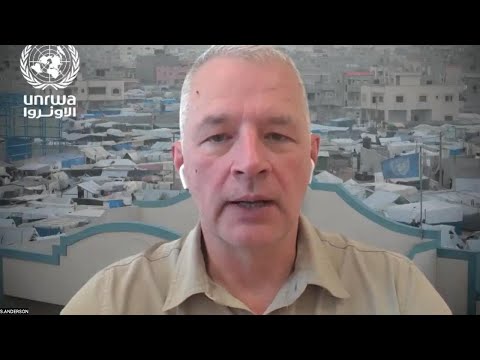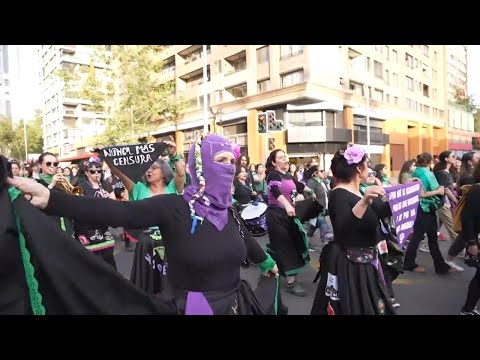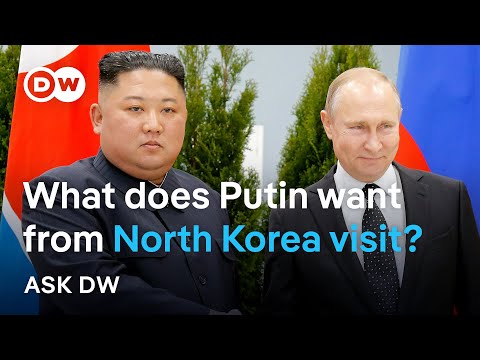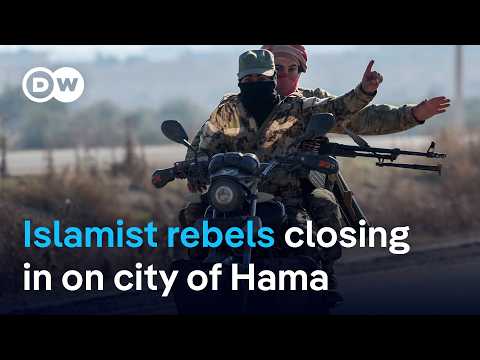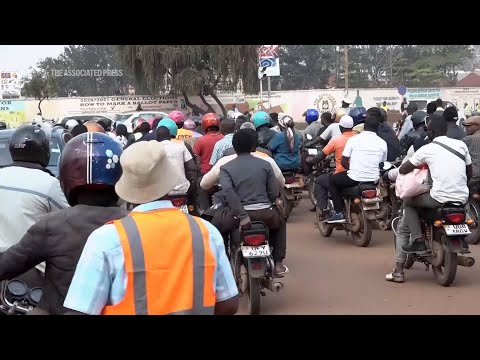(6 May 2024)
RESTRICTION SUMMARY:
++VIDEO AS INCOMING++
ASSOCIATED PRESS
Rafah, Gaza Strip via video call – 6 May 2024
++SOUNDBITES SEPARATED BY BLACK FRAMES, NO CUTAWAYS++
++STARTS ON SOUNDBITE++
1. SOUNDBITE (English) Scott Anderson, director of UNRWA affairs in Gaza:
"And so we’ve seen evacuation orders today issued for all of Rafah, east of Saladin and then a stretch of neighbourhoods just west of Saladin and Rafah. The total population impacted by the evacuation orders is approximately 100,000 people. Our concern, of course, is the 1.4 million people that are in Rafah, many of whom have been displaced multiple times and almost half of which are children."
++BLACK FRAMES++
2. SOUNDBITE (English) Scott Anderson, director of UNRWA affairs in Gaza:
"If innocent civilians are not given the opportunity to move before an operation would start in Rafah, the results would be catastrophic for the 1.4 million people, almost half of whom are children."
++BLACK FRAMES++
3. SOUNDBITE (English) Scott Anderson, director of UNRWA affairs in Gaza:
"UNRWA, as well as the rest of the United Nations and international humanitarian community will not evacuate from Gaza. We’re here to provide aid and a response to the people who are innocent civilians and who are caught in this horrible conflict. We intend to stay and deliver, to continue providing services. We have extended our footprint from Rafah up to Deir al-Balah in terms of our staffing, and we may operate out of Deir al-Balah."
++BLACK FRAMES++
4. SOUNDBITE (English) Scott Anderson, director of UNRWA affairs in Gaza:
"We will stay and deliver, specifically for people that choose to relocate from Rafah elsewhere. We will not leave them. In fact, we will follow them. I, specifically, will be one of the last people to leave Rafah, once everybody who chooses to move has moved. And we will provide aid to people wherever they choose to be – be that in Rafah, Khan Younis, the middle area of Gaza or north of Gaza. It’s peoples’ choice where to be. Innocent civilians should be protected and have access to aid to meet their basic needs. And wherever they are, as I said within Gaza, the United Nations and the international humanitarian community will work to ensure that people get the aid that they need."
++BLACK FRAMES++
5. SOUNDBITE (English) Scott Anderson, director of UNRWA affairs in Gaza:
"So, UNRWA like the rest of United Nations coordinates through OCHA (U.N. Office for the Coordination of Humanitarian Affairs) all the movements that require coordination with the Israeli Defense Forces. The risks that UNRWA has are the same as the risk for the rest of the United Nations as well as the international humanitarian community. Most of it for us is being in the wrong place at the wrong time. I think that we have a very good relationship with the IDF, certainly on a lower level with coordination. I think they’ve acted professionally. We have had some challenges that we all try to work through."
++BLACK FRAMES++
6. SOUNDBITE (English) Scott Anderson, director of UNRWA affairs in Gaza:
"We do have problems where sometimes when we’re waiting to cross checkpoints, the length of time that we have to wait is a bit excessive, and it’s also the lost opportunity of what we could be doing if we’re not sitting at a checkpoint."
++BLACK FRAMES++
7. SOUNDBITE (English) Scott Anderson, director of UNRWA affairs in Gaza:
"One thing, that’s most critical concern, is fuel. All our fuel currently comes in through Rafah, from Egypt into Gaza, where it’s delivered. Everything that we do in Gaza revolves around fuel: health care, food aid delivery."
Find out more about AP Archive: http://www.aparchive.com/HowWeWork
Twitter: https://twitter.com/AP_Archive
Facebook: https://www.facebook.com/APArchives
Instagram: https://www.instagram.com/APNews/
You can license this story through AP Archive: http://www.aparchive.com/metadata/youtube/c84c02284d8e4c23aee6e6b510c58c49

